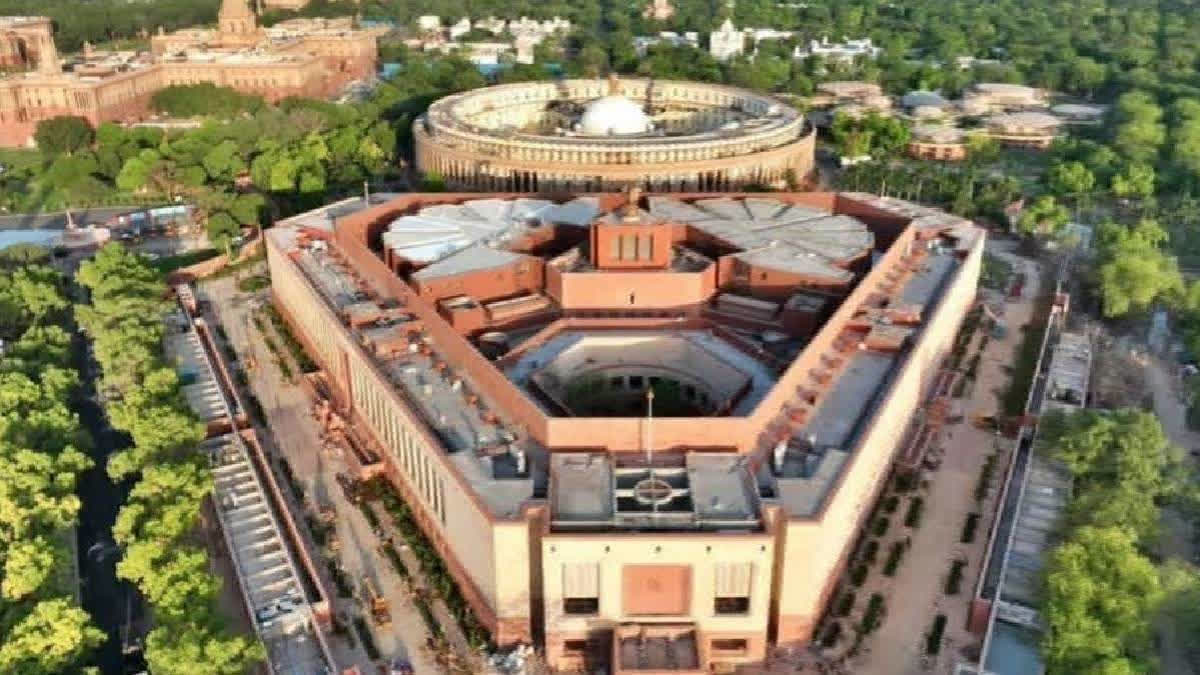New Delhi: The Parliamentary Committee on Home Affairs emphasised safeguarding the authenticity and integrity of electronic and digital records acquired during the investigation following the fact that such evidence is prone to tampering. Submitting the 248 report of the Bharatiya Sakshya Bill, 2023, to Rajya Sabha chairman Jagdeep Dhankar, BJP’s Rajya Sabha MP and Committee Chairman Brij Lal has recommended that a provision may be inserted to mandate that all electronic and digital records acquired as evidence during the investigation are securely handled and processed through the proper chain of custody.
“Appropriate provision in this regard may be made in the Bharatiya Nagarik Suraksha Sanhita, 2023,” the report stated. The provision of maintaining a proper chain of custody has already been incorporated within the ambit of criminal laws in developed countries such as the United States of America (USA) and the United Kingdom (UK). It was suggested to the Committee that such a provision may be included in the Bill given the susceptibility of electronic and digital records to tampering during the handling of evidence.
The Bharatiya Sakshya Bill, 2023, was introduced in the Lok Sabha on August 11, 2023, to replace the outdated Indian Evidence Act, of 1872. The Bill seeks to consolidate and provide general rules and principles of evidence for fair trial. The Bill, as introduced, has omitted four Sections, which contain colonial references and other outdated procedures, from the earlier Act 1872.
In June, the Law Commission initiated a fresh deliberation on the UCC by seeking views from stakeholders, including the public and recognised religious organisations. In short, the UCC would translate into having a common law for all citizens of the country that is not based on religion. Personal laws and laws related to inheritance, adoption and succession are likely to be covered by a common code.
It has also included various forward-looking provisions such as the expansion of the definition of evidence to include electronic and digital records, expansion of the definition of primary evidence, provision for admissibility of electronic or digital records as evidence, exclusion of privileged communication between the Ministers and the President from the purview of courts, provision of certificate for handling of electronic and digital evidence. The Bill now contains 170 clauses as compared to 167 sections in the IEA, 1872.
The Ministry of Home Affairs informed that the proposed legislation seeks to address the problems in the present legal system, which includes the complex nature of the legal system; huge pendency of cases in the courts; low connection rate; imposition of meagre fines not commensurate with the crime; overcrowding of undertrial prisoners in prisons; scanty adoption of modern technology in the legal system; delay in investigation, complicated investigation and pending hearing process and inadequate use of forensic evidence and delay in getting justice to the poor.
The report said that the Bill was drafted with utmost care keeping in mind their implications on the citizenry for the years to come. “During the drafting process, suggestions were sought from all the Governors, the Chief Ministers, the Lieutenant Governors and Administrators of States and Union Territories. The views and inputs of the Chief Justice of India, Chief Justices of all High Courts, Bar Councils, Law Universities and Institutions and Members of Parliament were also solicited,” the report stated. Furthermore, the Central Bureau of Investigation (CBI), Intelligence Bureau (IB), Bureau of Police Research and Development (BPR&D), Central Police Organisations (CPOs) and more than 1,000 police officers from various states also submitted their suggestions.
Also read: 3 proposed criminal laws are much-needed reforms: Par panel



